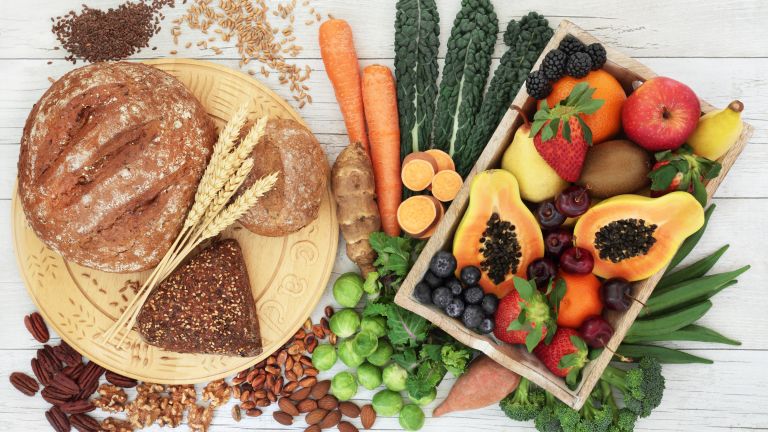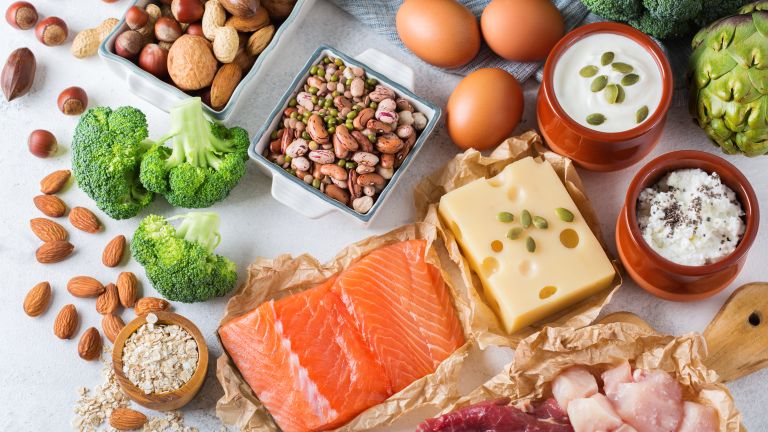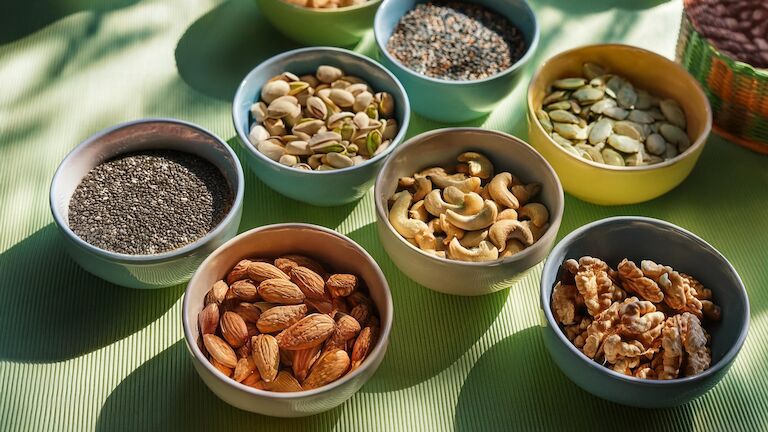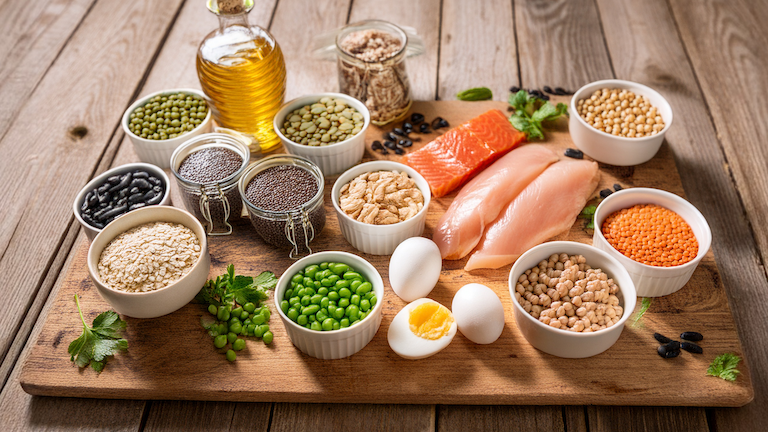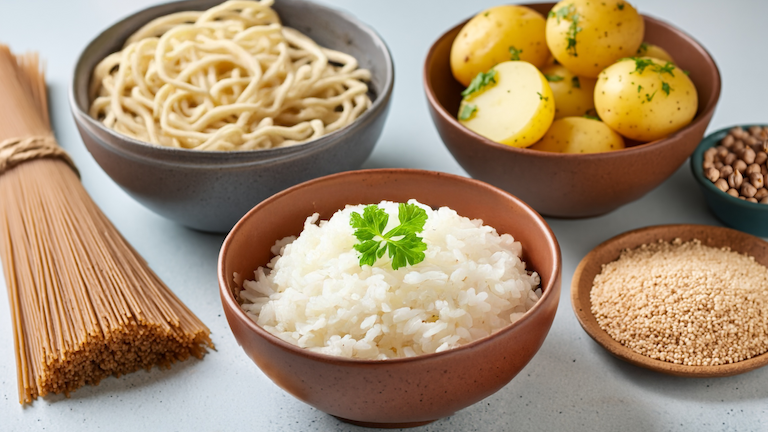Sun on a plate – and more vitamin D every day
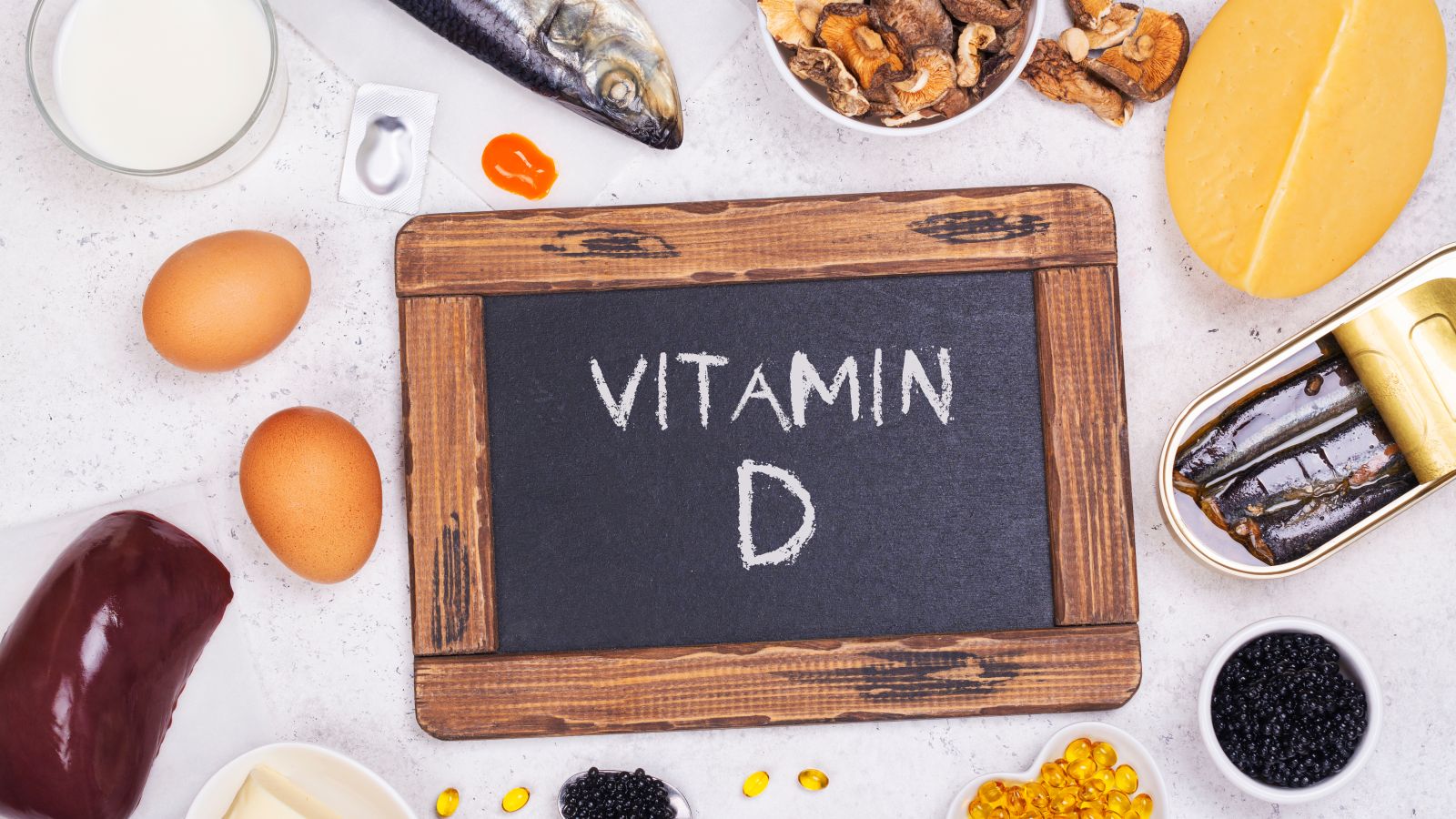
Fit as a fiddle in summer, but plagued by colds in winter? Maybe the sunshine vitamin is to blame! But what exactly is this vitamin, and how can you get a good supply?
We all know that in autumn and winter we’ll be under the weather more often and that colds lurk everywhere – if a colleague is coughing all morning and your child comes home from school with a runny nose, you’re likely to have a sore throat by the end of the day. Turn on the TV in the evening and you’re bombarded with ads, like “Vitamin D for a healthy immune system!” But can this vitamin really promise all that? Many claims are made in these advertisements which are totally unfounded and embellished, especially in the case of “hype products” such as vitamin D supplements.
Is vitamin D a superpower?
Out of all our nutrients, vitamin D, or the sunshine vitamin, is generally regarded as special. As the title suggests, the sun plays an important role. The body not only obtains this essential vitamin from food but can produce it itself with the aid of the sun’s rays.
The internet is overloaded with advice, assumptions and facts concerning the mode of action and intake of vitamin D, prompting readers of this information to ask themselves, of course, what lies behind such bold theories: “Vitamin D deficiency causes cancer and cardiovascular diseases, or protects against the coronavirus”?
Below, I have tried to extract the important insights and facts from this jumble of information on vitamin D and provide a summary. Because one thing is certain: Vitamin D is an important nutrient for the body and should be remembered during the winter in particular when there is less sunshine. The article then provides further advice about increasing your daily vitamin D intake along with recipes in which vitamin D can be found.
What exactly is vitamin D?
Vitamin D is the group term for calciferols, which belong to the class of fat-soluble vitamins. [1] This means that they require fat to help transport, metabolise and store them in the body. The most important form of vitamin D to humans is vitamin D3 which, unlike other vitamins, can be produced by the body itself.
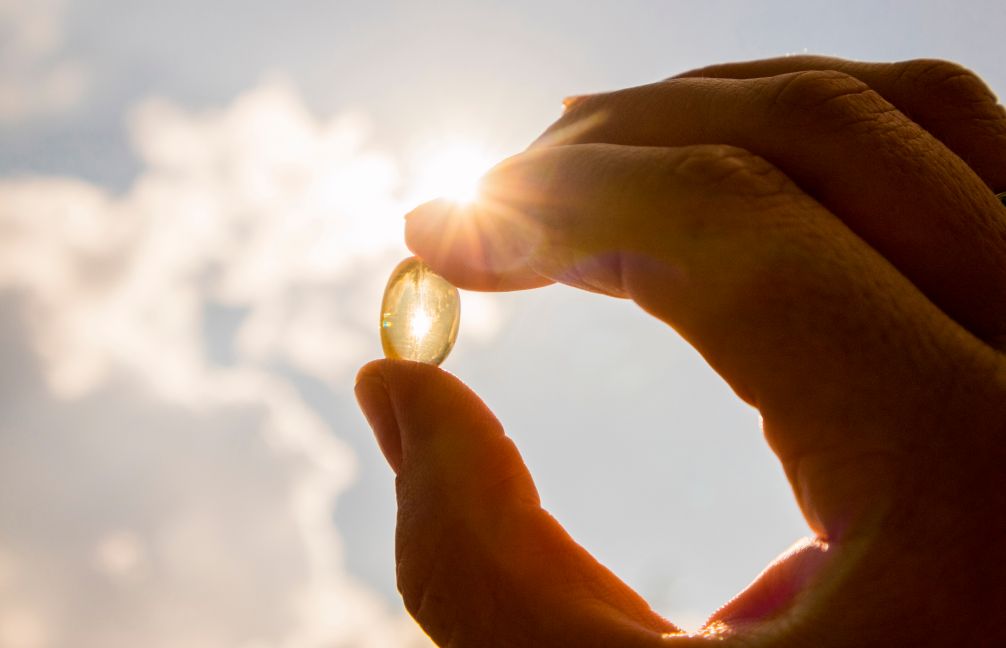
As already mentioned, the sun, or more precisely the UVB radiation from the sun, also plays a role here. [2] The body can produce about 80% to 90% of the vitamin D it needs in this way. The rest is or should be obtained from food.
Tip: Useful recipes can be found at the end of this article!
What can this vitamin do for us? Why do we need it?
It has been proven that we need vitamin D for various metabolic processes. Among other things, it plays a very important role in calcium and phosphate metabolism, contributing to bone mineralisation by promoting the absorption of calcium and phosphate from food and their incorporation into the bones. The bones thus remain strong and healthy. Vitamin D also influences protein biosynthesis, i.e. the formation and control of our genes. [3]
Vitamin D has been the target of much research, especially in recent years, and is frequently reported to have other effects, such as on the immune system or blood pressure. Studies have also examined the association between vitamin D and its effect on asthma symptoms or the mortality rate of intensive care patients, for instance. [4] The connection between various types of cancer and vitamin D intake is also being investigated and is a subject of heated scientific debate. According to a statement from the German Nutrition Society, however, the studies on this topic are insufficient. This also applies to the effect of the vitamin on type 2 diabetes mellitus and cardiovascular diseases.
It is deemed likely, however, that vitamin D supplementation decreases the mortality rate among immobile elderly people. [5] This results from the fact that, given their restricted capabilities, they no longer spend enough time outdoors and thus get too little sun. This is especially the case in nursing homes.
The symptoms of vitamin D deficiency, which can be inferred from the functions mentioned, are undisputed. Among other things, vitamin D deficiency can cause rickets in children and infants, osteomalacia (“bone softening”) in adults, and osteoporosis (loss of bone density) in old age. These conditions are all characterised by bone problems and deformities, as well as muscle weakness. [1]
Remember: Vitamin D is essential to the body and contributes not only to general health but also to a functioning immune system. However, a cold or a weakened immune system cannot be cured/boosted by this specific vitamin alone.
Do you have a vitamin D deficiency?
Vitamin D levels can be determined in the blood by measuring the 25(OH)D value. Blood concentrations above 50 nmol/l indicate an adequate level, between 30 and <50 nmol/l a suboptimal level, and below 30 nmol/l a deficient level of vitamin D. [6] In Germany and many other countries, vitamin D intake leaves much to be desired. Health surveys in recent years clearly demonstrate that the levels in both children and adults in this country are far from optimal. [7]
According to the Robert Koch Institute, only 38.4% of adults living in Germany are getting enough vitamin D. [6] This situation is very seasonal, however. In Germany, it is primarily in the winter months that our bodies produce little or in most cases no vitamin D from the sun. We should make a conscious effort to spend time outdoors and pay attention to eating appropriately during this period. In addition, vitamin D supplements should be taken as advised by a doctor.
For many sections of the population, such as those mentioned above who are mostly immobile, taking these vitamin D supplements long-term also makes sense. The guidelines of the German Nutrition Society do not generally object to the additional intake of vitamin D supplements. They state that in the case of insufficient sun exposure, adequate levels of vitamin D can often only be achieved with such a supplement. [8] However, this should always be clarified with a doctor. As with everything, too much can be just as dangerous as too little.
Remember: It is wise to get your vitamin D levels checked regularly by your doctor. He or she can then tell you whether you need a vitamin D supplement and how much you should take.
Vitamin D in food?
As already mentioned, we can also get some of the vitamin D we need from our food. But where can it be found?
Unfortunately, significant amounts of vitamin D are found in only a few foods which are almost exclusively animal-based. The most vitamin D is found in oily fish, i.e. fish that are particularly rich in fat, such as salmon, herring or eel. Some delicious and simple recipes can be found here in the foodfittery app:
Incidentally, eating fish can also be sustainable – by taking a conscious and moderate approach to the amounts consumed while being mindful of the source and the labels of the respective organisations, for example.
If you don’t like fish, you can opt for alternatives such as hen's eggs, which contain vitamin D in the yolk. But small amounts are also found in dairy products such as cheese and butter.
- The perfect combination of these foods can be found in the recipe for Low-carb muffins with salmon & courgette
Vegans beware: Unfortunately, vitamin D is basically not found in plants, but can be produced by mushrooms. The UVB rays of the sun and additional heat can prompt mushrooms to produce vitamin D2 and D4, in a similar way to the production of vitamin D3 in humans. However, a lot of the mushrooms found in supermarkets are cultivated without sunlight and therefore contain no vitamin D. A good tip is to simply place store-bought mushrooms in the midday sun to replenish their vitamin D levels. [9] Some foods, such as yoghurts or oils, are fortified with vitamin D. They are labelled as such, or you can check the list of ingredients. Note: Products labelled organic may not contain additives – so there’s no need to check these.
For hardliners: If you’re not prepared to leave your vitamin D levels to chance and wish to take full control, cod liver oil, which is extracted from the liver of fish, offers the highest possible content of vitamin D3 with excellent bioavailability.
The important facts in brief
Vitamin D is a very important nutrient to humans and our well-being. Its activity in the body means it supports the immune system. However, attention should be paid to a generally balanced supply of nutrients, as this is the only way to build up and maintain an optimal immune system. As in every aspect of life, it all boils down to a healthy balance.
Vitamin D is mainly produced by the body with the help of sunlight. By spending plenty of time in the sun and eating a balanced diet containing the foods mentioned in this article, your body should be well-equipped. However, in Europe we often lack sunshine, especially in winter. Hence, vitamin D supplementation is usually recommended, but this should always be discussed with a doctor!
Here are a few links to recipes with foods that contain vitamin D:
- Easy gnocchi bake with salmon & broccoli
- Easy potato bake with salmon & broccoli
- Thai soup with cod, peas & baby spinach
- Fluffy pancakes with prawns & bell peppers
- Classic frittata muffins with salmon & asparagus
Sources (mainly in German):
1) https://www.rki.de/SharedDocs/FAQ/Vitamin_D/...
2) https://www.gesundheitsforschung-bmbf.de/...
3) https://www.dge.de/wissenschaft/referenzwerte/vitamin-d/
4) https://www.gesundheitsforschung-bmbf.de/...
5) https://www.dge.de/fileadmin/...
6) https://edoc.rki.de/handle/176904/2492
7) https://refubium.fu-berlin.de/...
8) https://www.dge.de/wissenschaft/...
9) https://www.ncbi.nlm.nih.gov/pmc/articles/...
Images: © shutterstock.com



